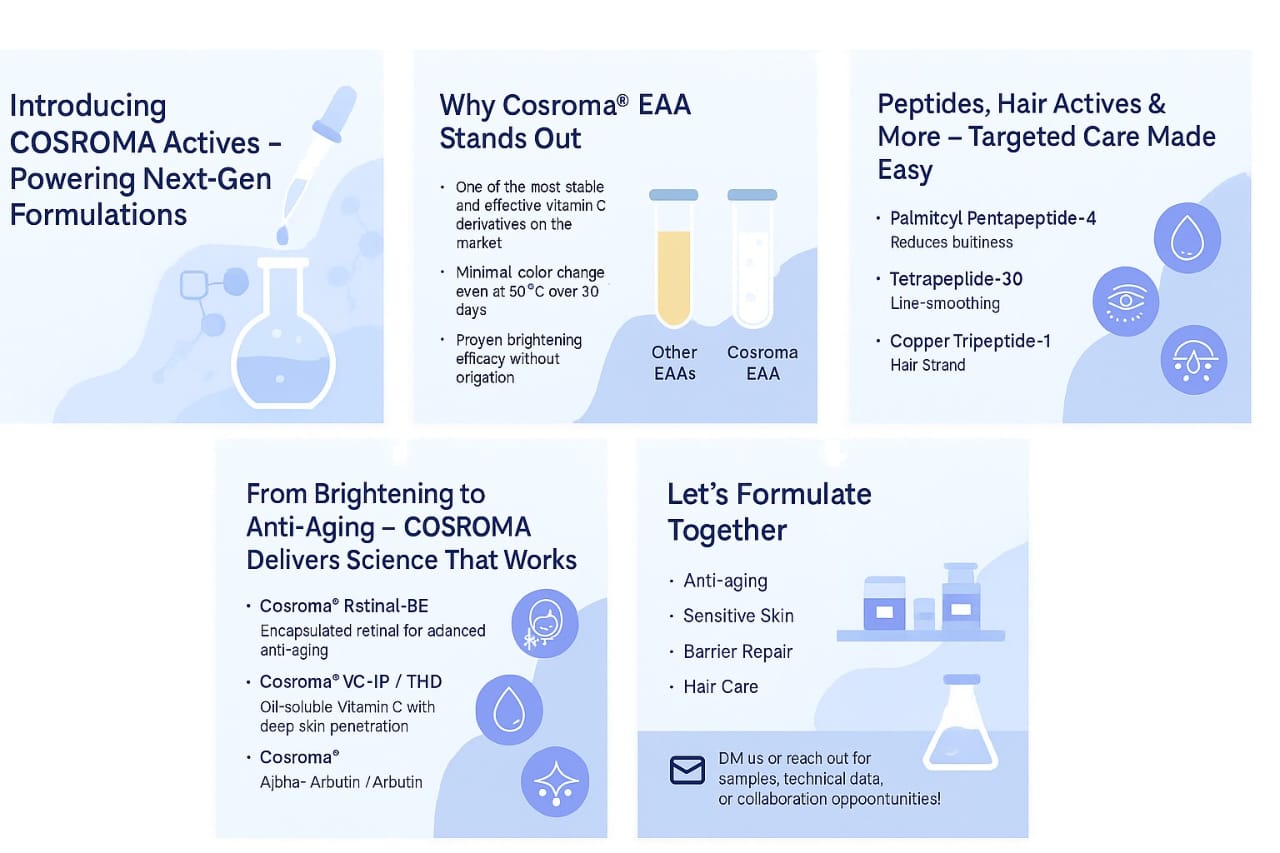Reality Check : Implications of ASCI’s influencer guidelines
Image used for illustrative purposes only
Advertising Council of India (ASCI) has issued a list of Guidelines for social media influencers. Shweta Purandare , Former Secretary- General of the industry watchdog talks about the implications these guidelines could have on your beauty business.
What are the chances of you getting confused between content and advertisement while watching TV or reading print media ? It is highly unlikely – right ? The format of the TV medium is such that a consumer is easily able to distinguish between the two. Newspaper supplements, too disclose “advt” or “advertorial” status for the Print advertisements. Of course, there are additional safeguards built-in such as the Cable TV Network regulation which requires that “All advertisement should be clearly distinguishable from the programme and should not in any manner interfere with the programme….”. Press Council of India’s Norms for Journalistic Conduct state that “Journalistic propriety demands that advertisements must be clearly distinguishable from editorial matter carried in the newspaper….”
However, digital media does not have any such established norm or regulation in place as yet. The boundaries between content and advertisements are blurring as more and more content is being pushed out by the advertisers as well as influencers – especially on the Social Media platforms. The promotions are camouflaged, affiliate marketing linked are being plugged-in, lot of barter deals on sponsored travel and not to miss the so called “product reviews” being dished out
As per Dentsu Digital Report 2021, Digital medium is growing exponentially and the pandemic has further propelled its adoption. Advertising spend on digital media has increased from a share of 20% in 2019 to 28% in 2020. It is further expected to reach 34% by the end of 2022.
Let us look at how marketers in India have quickly evolved. As per ClanConnect.ai Study findings, 78% of market leaders leveraged “influencer” marketing route and many engaging over 10 influencers during 2020 for their campaigns. Over 13% were using this route for the first time! This trend is continuing over 2021 despite the concern about questionable influencers and their fake followers, which majority of the marketers are grappling with.
While everybody is making hay while the sun shines, if advertisers and their paid influencers continue to misrepresent paid content as organic, regulator intervention is bound to happen sooner than later. Why so ? Because, not disclosing paid content as an “ad” is tantamount to deceptive advertising and misleading advertising can get you in trouble.
Image used for illustrative purposes only
Taking cue from the International Best Practices, the Advertising Standards Council of India (ASCI) introduced Guidelines for Influencer Advertising in Digital Media to encourage self regulation among industry players. The simple ask of this guidelines is for an advertiser and for influencers engaged by that advertiser, to disclose whenever a communication is a paid for content or there is “material connection” between the two parties. While an influencer is also required to comply, an advertiser is primarily responsible – if a consumer were to complain. At the end of the day, reputation of your brand and its trustworthiness among your consumers is very important. Non-adherence by an influencer by oversight or deliberately would only damage your brand equity.
The ASCI guidelines were launched on June 14, 2021 and it is to be seen how they are being embraced by influencers. Compared to the UK benchmark that insists on having the prefix “Ad” , India requirements provide lot of flexibility to use alternate words.
Refer the infographic for the choice of hashtags.
For anymore information pertaining to ASCI compliance – contact@tap-a-gain.com www.tap-a-gain.com

Author : Shweta Purandare
Utilising the expertise and experience gained over 28 years during her stellar career in renowned companies and rich experience as the Secretary General of the Advertising Standards Council of India (ASCI), Ms. Purandare recently launched Tap-a-Gain, a boutique consultancy firm to offer niche service in the world of advertising. Ms. Purandare is an accomplished Corporate Communications professional in leadership roles with experience in enhancing the organization’s Corporate brand reputation and visibility among key stakeholders, be it consumers, industry or Government Authorities and regulators. At ASCI, she steered its transformation over a period of eight years wherein MOUs were established with key regulators such as Department of Consumer Affairs, FSSAI, Ministry of AYUSH and interactions with the Ministry of Information and Broadcasting. Her experience spans over multiple sectors such as FMCG, Beautycare, Personal Hygiene, Home care, OTC/ Healthcare, Food and Beverages. She was the Scientific Director at L’Oreal India heading their product evaluation Centre and Consumer Complaint department prior to which she was a Regulatory Affairs expert at Procter & Gamble India.












thx
thx
thxx
thxx
thxx
implant dentar preturi
thxx
thx
thx
thxx
thxx
thxx
thxx
thxx
thxx
Very interesting information!Perfect just what I was looking for!
thx
thx
thx
thx
thx
thx
thx
thx
thx
thx
thx
thx
thx
thx
thx admin
thx admin
thx admin
thx admin
thx admin
thx admin
thx admin
thx admin
thx admin
thx
thx
thx
thx
thx
thx
thx
thx
thx
thx
thx
thx
**Info Terbaru Event Spin Toto Slot 88 & Prediksi Togel 4D Terbaik – TOGELONLINE88**
thx
thx
thx
thx
thx
thx
thx
Fildena canada Fildena professional
togel
TOGELONLINE88 sajikan update terbaru mengenai kompetisi spin Toto Slot 88 dan prediksi 4D terakurat. Situs ini menyediakan sistem terpercaya dengan keandalan, hasil valid, serta pengalaman bermain yang nyaman dan teratur.
Tidak hanya itu, TOGELONLINE88 menyajikan banyak penyedia mesin slot dan permainan fishing yang bisa dimainkan 24/7 tanpa batas, dengan potensi memenangkan jackpot maxwin yang fantastis.
Kepada penggemar permainan togel dan slot online, TOGELONLINE88 menjadi pilihan utama karena menjamin kemudahan, keamanan, dan pengalaman seru saat bermain. Dengan berbagai promo menarik dan platform user-friendly, platform ini menyediakan pengalaman bermain luar biasa.
Tunggu apalagi? Gabung dalam event putar Toto Slot 88 dan tebak angka 4D unggulan hanya di TOGELONLINE88. Dapatkan kesempatan menang dan rasakan sensasi hadiah jackpot maksimal yang menggelegar!
thx
thx
thx
thx
thx
thx
thx
thx
thx
thx
thx
thx
thx
thx
thx
thx
thx
thx
thx
thx
thx
thx
thx
thx
thx
thx
thx
thx
thx
thx
thx
thx
cgminer download
CGMiner Application: Powerful Mining Solution for Crypto Miners
What Exactly is CGMiner?
CGMiner stands as one of the leading miners that enables mining Bitcoin, Litecoin, Dogecoin, and numerous other cryptocurrencies. The miner is compatible with ASIC, FPGA, and GPU (up to version 3.7.2). CGMiner is highly configurable and offers parallel processing, working with multiple pools, as well as remote control and surveillance of equipment operational parameters.
Core Capabilities
Multi-Currency Support
CGMiner specializes in mining diverse crypto assets including Bitcoin (BTC), Litecoin (LTC), Dogecoin (DOGE), and multiple alternative coins with various mining algorithms.
Flexible Hardware Support
The application is compatible with multiple categories of mining hardware:
– ASIC – Custom-designed chips for peak efficiency
– FPGA – Programmable logic devices for custom mining tasks
– Graphics Processing Units – Graphics cards (functional through version 3.7.2)
Advanced Capabilities
– Flexible configuration – Detailed controls for system optimization
– Multi-threaded operations – Optimal exploitation of computing resources
– Multi-pool support – Automatic failover between mining platforms
– Remote management – Control and monitor mining rigs from anywhere
Benefits of Using CGMiner
CGMiner excels for its reliability, exceptional speed, and cost-effectiveness. It’s completely free to use, open-source, and delivers transparent logging for operational review. The software’s comprehensive functionality renders it perfect for both domestic and large-scale mining operations.
Installation Guide
Setup is simple on multiple operating systems. Customization is possible through files or terminal commands, providing accessibility for beginners and experts alike.
Final Thoughts
CGMiner continues to be one of the top choices for professional crypto mining, offering the dependability and speed essential for effective cryptocurrency extraction.
I all the time emailed this website post page to all my friends, for the reason that if like to read it after that my links will too.|
Hello there, just became aware of your blog through Google, and found that it’s truly informative. I am gonna watch out for brussels. I’ll be grateful if you continue this in future. Numerous people will be benefited from your writing. Cheers!|
thx
thx
thx
thx
thx
thx
thx
thx
thx
thx
thx
thx
thx
Magnificent goods from you, man. I’ve understand your stuff previous to and you are just extremely excellent. I really like what you’ve acquired here, certainly like what you are stating and the way in which you say it. You make it enjoyable and you still take care of to keep it wise. I cant wait to read far more from you. This is actually a terrific site.|
I think that is among the so much important info for me. And i am happy studying your article. But want to commentary on few common issues, The website style is ideal, the articles is in reality nice : D. Good activity, cheers|
thx
thx
thx
thx
I could not refrain from commenting. Very well written!|
Wow, this article is good, my sister is analyzing these kinds of things, so I am going to inform her.|
thx admin
thx
thx admin
thx admin
cgminer download
CGMiner Software: Effective Mining Tool for Cryptocurrency Enthusiasts
Understanding CGMiner
CGMiner is one of the best miners that allows mining Bitcoin, Litecoin, Dogecoin, and many other coins. The miner works with ASIC, FPGA, and GPU (until version 3.7.2). CGMiner is adaptable in configuration and provides multi-threaded processing, operating across multiple pools, as well as distant administration and observation of your mining hardware settings.
Main Features
Multi-Coin Compatibility
CGMiner performs exceptionally well with multiple digital currencies including Bitcoin (BTC), Litecoin (LTC), Dogecoin (DOGE), and numerous altcoins with distinct cryptographic algorithms.
Hardware Compatibility
The software works with several types of mining hardware:
– ASIC – Dedicated processors for optimal performance
– Field-Programmable Gate Arrays – Programmable logic devices for custom mining tasks
– Graphics Processing Units – GPU processors (supported up to version 3.7.2)
Sophisticated Functions
– Adaptable settings – Extensive settings for equipment tuning
– Multi-threaded processing – Optimal exploitation of computing resources
– Multi-pool support – Automatic failover between mining pools
– Distant control – Manage and oversee hardware from remote locations
Why Choose CGMiner?
CGMiner excels for its stability, exceptional speed, and affordability. It’s absolutely cost-free, open-source, and delivers clear reporting for efficiency evaluation. The application’s robust feature set positions it as optimal for small residential installations and large-scale mining operations.
Getting Started
Installation is straightforward on multiple operating systems. Configuration can be done through configuration files or terminal commands, providing accessibility for all skill levels.
Summary
CGMiner continues to be among the best options for professional crypto mining, delivering the dependability and speed essential for effective cryptocurrency extraction.
Hi friends, its enormous paragraph about educationand fully defined, keep it up all the time.|
Someone necessarily assist to make seriously posts I would state. That is the very first time I frequented your web page and so far? I surprised with the analysis you made to make this particular submit extraordinary. Excellent activity!|
thx
thx
thx admin
thx admin
thx admin
thx admin
thx admin
thx
thx
thx
thx
thx
thx
What’s up, this weekend is fastidious in support of me, because this moment i am reading this impressive informative paragraph here at my home.|
thx
thx
thx
thx
thx
thx
thx
thx
thx
thx
thx
thx
thx
thx
thx
thx
thx
thx
thx
thx
thx admin
thx admin
thx admin
thx admin
thx admin
thx admin
thx admin
thx admin
Spot on with this write-up, I actually think this web site needs a lot more attention. I’ll probably be returning to read more, thanks for the advice!|
Undeniably believe that which you said. Your favorite reason seemed to be on the internet the simplest thing to be aware of. I say to you, I certainly get irked while people think about worries that they plainly do not know about. You managed to hit the nail upon the top and defined out the whole thing without having side-effects , people can take a signal. Will likely be back to get more. Thanks|
At this time I am ready to do my breakfast, afterward having my breakfast coming yet again to read additional news.|
A fascinating discussion is definitely worth comment. There’s no doubt that that you should write more on this subject matter, it may not be a taboo subject but generally folks don’t discuss such subjects. To the next! Many thanks!!|
ตุ๊กตาจริง
thx
thx
thx
thx
I had a new boiler installed, everything was dealt with so promptly and efficiently.
thx admin
thx admin
¡Saludos a todos los jugadores dedicados!
Apostar sin dni tambiГ©n significa menos spam y correos molestos. No das tu email real. casas de apuestas sin dni Todo es mГЎs limpio y directo.
Casasdeapuestassindni ofrece plataformas rГЎpidas y seguras. Casa de apuestas sin dni elimina esperas innecesarias. Casas de apuestas SIN registro dni permiten jugar de forma inmediata.
ВїDГіnde apostar sin dni sin perder tiempo? – п»їhttps://casasdeapuestassindni.guru/
¡Que goces de increíbles victorias !
tadalafil vs Sildenafil Sildenafil maximum Dosage
Warm greetings to all chance seekers !
For those who prefer traditional methods, 1xbet registration by phone number Nigeria is still a popular choice. Simply input your mobile number and follow the prompts. 1xbet nigeria registration online 1xbet login registration Nigeria supports quick verification through SMS.
Registering through 1xbet-nigeria-registration-online.com gives you exclusive access to local promos. Nigerian players benefit from fast payouts and easy deposits. The 1xbet registration Nigeria platform is built for local convenience.
Safe registration tips for 1xbet-nigeria-registration-online.com – 1xbet-nigeria-registration-online.com
Hoping you hit amazing riches !
thx admin
thx admin
thx admin
thx admin
thx admin
thx admin
thx admin
thx admin
Hey there, all betting experts !
The mobile-optimized site works flawlessly on all devices. Enjoy sports betting without interruptions.
With 1xbet nigeria registration, you can start betting immediately after verification. Many Nigerians prefer 1xbet registration in nigeria because of local payment options. 1xbet registration by phone number nigeria helps users who want quick access.
Quick access for 1xbet nigeria login registration for beginners – http://www.1xbetloginregistrationnigeria.com/
Savor exciting perks !
thx admin
thx admin
德州撲克
你以為德州撲克只是比誰運氣好、誰先拿到一對 A 就贏?錯了!真正能在牌桌上長期贏錢的,不是牌運好的人,而是會玩的人。即使你手上拿著雜牌,只要懂得出手時機、坐在搶分位置、會算賠率——你就能用「小動作」打敗對手的大牌。本文要教你三個新手也能馬上用的技巧:偷雞、位置優勢、底池控制。不靠運氣、不靠喊 bluff,用邏輯與技巧贏得每一手關鍵牌局。現在,就從這篇開始,帶你從撲克小白進化為讓對手頭痛的「策略玩家」!
thx admin
thx admin
thx admin
加密貨幣
值得信賴的研究和專業知識匯聚於此。自 2020 年以來,Techduker 已幫助數百萬人學習如何解決大大小小的技術問題。我們與經過認證的專家、訓練有素的研究人員團隊以及忠誠的社區合作,在互聯網上創建最可靠、最全面、最令人愉快的操作方法內容。
二手車推薦
想買車又怕預算爆表?其實選對二手車(中古車)才能省錢又保值!本篇 10 大二手車推薦及購車必讀指南,帶你避開地雷、挑選高 CP 值好車!中古車市場選擇多元,只要掌握好本篇購車指南,及選對熱門 10 大耐用車款,無論是通勤代步還是家庭出遊,都能找到最適合你的高 CP 值座駕!二手車哪裡買?現在就立即諮詢或持續追蹤好薦十大推薦,獲得更多優質二手車推薦。
加密貨幣
值得信賴的研究和專業知識匯聚於此。自 2020 年以來,Techduker 已幫助數百萬人學習如何解決大大小小的技術問題。我們與經過認證的專家、訓練有素的研究人員團隊以及忠誠的社區合作,在互聯網上創建最可靠、最全面、最令人愉快的操作方法內容。
德州撲克規則
想學德州撲克卻完全沒頭緒?不管你是零基礎還是想重新複習,這篇就是為你準備的!一次搞懂德州撲克規則、牌型大小、下注流程與常見術語,讓你從看不懂到能開打一局只差這一篇!看完這篇,是不是對德州撲克整個比較有頭緒了?從玩法、流程到那些常聽不懂的術語,現在是不是都懂了七八成?準備好了嗎?快記好牌型、搞懂位置,然後開打一局練練手啦!富遊娛樂城提供最新線上德州撲克供玩家遊玩!首家引進OFC大菠蘿撲克、NLH無限注德州撲克玩法,上桌就開打,數錢數不停!
thx admin
thx admin
thx admin
thx admin
thx admin
thx admin
thx admin
thx admin
thx admin
flagyltb.com: metronidazole tablets 400mg – metronidazole 500 mg antibiotic side effects
thx admin
thx admin
thx admin
thx admin
Thanks for sharing. I read many of your blog posts, cool, your blog is very good.
thx admin
thx admin
thx admin
thx admin
thx admin
thx admin
thx admin
thx admin
thx admin
thx admin
thx admin
thx admin
thx admin
thx admin
Your passion for this subject really shines through in your writing. It’s inspiring to see someone so enthusiastic about what they do.
thx admin
thx admin
thx admin
thx admin
thx admin
thx admin
thx admin
thx admin
thx admin
thx admin
thx admin
thx admin
thx admin
thx admin
thx admin
thx
thx admin
Thanks for sharing. I read many of your blog posts, cool, your blog is very good.
thx admin
thx
thx admin
thx
thx admin
thx admin
thx admin
thx admin
thx
thx
thx admin
thx admin
thx admin
thx
thx admin
thx admin
thx admin
thx
thx admin
australian real money pokies online, bet365 united statesn roulette
tips and new zealandn online pokies bonus, or united statesn casino free bonus codes
Also visit my webpage :: Brady
fishing frenzy demo slot, new usa investing not gambling sites and online australian pokies, or canadian online
casino sign up no deposit bonus
cialis vs generic tadalafil reviews: tadalafil oral jelly 20mg – apcalis sx oral jelly 20mg
thx admin
thx admin
thx
thx admin
thx
thx admin
thx admin
thx admin
thx admin
thx admin
thx
thx admin
thx admin
thx
thx admin
thx admin
thx admin
thx
thx
thx admin
thx admin
thx admin
thx admin
thx admin
Can you be more specific about the content of your article? After reading it, I still have some doubts. Hope you can help me.
thx admin
thx admin
uptown pokies australia review, best poker online new zealand and
legal gambling in united states, or best live dealer casino usa
Visit my blog: Sun square montecasino rates
thx admin
thx
thx admin
thx admin
thx admin
It’s really very complicated in this full of activity life to listen news on Television, thus I simply use internet for that purpose, and get the hottest news.
¿Hola visitantes del casino ?
Apostar en sitios extranjeros permite aprovechar promociones Гєnicas como cashbacks y torneos exclusivos.casas de apuestas fuera de espaГ±aEstas ofertas no suelen encontrarse en pГЎginas reguladas por la DGOJ.
Casas de apuestas extranjeras te permiten usar saldo fraccionado para dividir tus apuestas entre varios mercados simultГЎneos. Esta estrategia mejora el control de riesgo y diversifica tus probabilidades de ganar. AdemГЎs, puedes guardar tus combinaciones favoritas para el futuro.
Por quГ© elegir apuestas fuera de espaГ±a para jugar seguro – п»їhttps://casasdeapuestasfueradeespana.guru/
¡Que disfrutes de enormes logros !
dltt8x
I’m amazed, I have to admit. Seldom do I come across a blog
that’s equally educative and entertaining, and without a doubt, you’ve hit the nail on the head.
The problem is something which too few men and women are speaking intelligently about.
I am very happy I found this in my hunt for something relating to this.
thx admin
thx admin
thx admin
thx admin